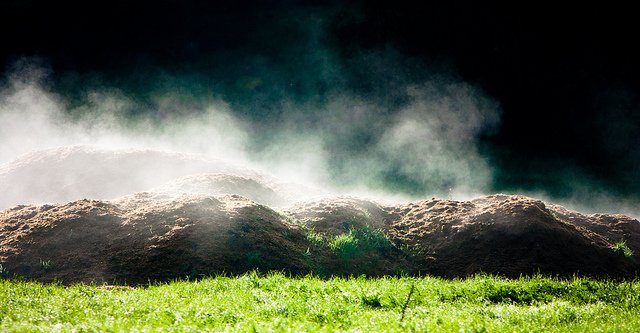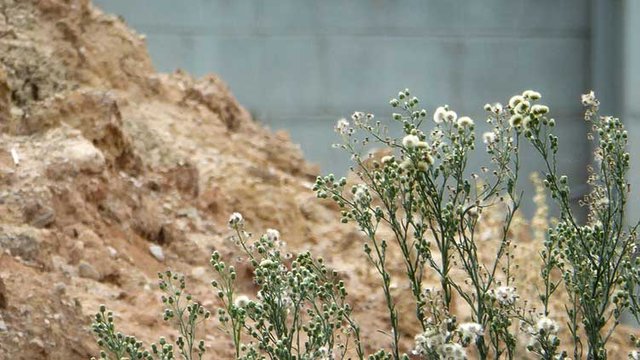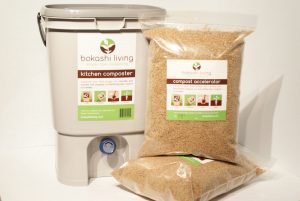Hey Steemians — Composting weeds can make some gardeners nervous, thinking that they are going to end up spreading the weed all around their garden whenever they spread compost. I know it did for me when I first started to compost.
Troublesome weeds such as couch grass, nettles, buttercups and ground elder, have large root systems. Their root systems are what makes them such prolific growers and so hard to eradicate from your garden. These roots absorb huge amounts of valuable nutrients from the soil.
What does that mean?
Don’t throw them away! Your garden can benefit from all of those extra nutrients. Leaves aren't the only thing you should be composting from your yard!
By following these few simple tips you can compost weeds without the risk of spreading them throughout your garden.
Remember: We will never eradicate weeds, they blow about, birds drop them and they can sleep in the soil for years then soil disturbance will set them off.
5 Ways to Compost Your Weeds
1. Using the Hot Compost Method

source
If your compost pile gets plenty of heat and is steaming to the touch, then weeds can compost in as little as 6 to 8 months. To get your compost piles hot enough requires a perfect mix of browns and greens, regular working and (ideally) a sunny location. The heat from your compost should damage and destroy roots and seeds so that your weeds will not propagate from the compost.
However, for most of us, it isn’t as easy as that. Unfortunately, most home compost bins do not get hot enough to destroy all seeds and roots. Smaller and slower acting compost piles may take up to two years to kill weeds. This does not fit in with most people’s annual rotations of their compost piles, so this method is out for many gardeners.
2. Rotting (Making Weed Soup)

source
If your compost pile doesn’t heat up enough — don’t worry, most domestic sized composters don’t — then you need to use a different approach. You need to make....weed soup!
How to Kill Weeds by Rotting
- Put the roots of your perennial weeds into a bucket.
- Fill the bucket with water and weigh down the weeds with a brick or stone. You want to ensure the roots remain below the surface of the water.
- Cover the bucket to keep out light, prevent evaporation and to stop rain making the bucket overflow.
- Leave for approximately 1 month. That should be long enough to drown even perennial weeds.
- The strained liquid makes a great liquid fertilizer. Dilute 5 parts water to 1 part weed liquid.
- The drowned roots can now be added to your compost pile and composted as normal.
3. Desiccating
During hot summers, you can take advantage of the sun’s heat to desiccate your weeds. Lay the roots of your perennial weeds on concrete or corrugated iron (keep them off the soil). Allow the summer sun to dry them out for 2 to 3 weeks. The roots should then be baked hard and are safe to add to your compost pile.4. Bagging (Good for Large Quantities)

source
If you have a large quantity of weeds to get rid of then you can simply bag them in compostable bags (ideally paper yard waste bags). Find a convenient place to ‘hide’ these bags; such as behind your garden shed. Cover with black plastic, or carpet (something to exclude the light). Leave for 2 to 3 years.
This should be long enough to kill even the toughest weeds. You can then use the resulting compost on your garden.
5. Put in a Bokashi Composter
Bokashi composting is a popular method for composting food waste. Bokashi composting can also be used effectively to compost weeds. The bokashi composting process uses microbes to ferment organic material. This fermentation process creates an acidic environment which will kill seeds and roots of your weeds.

To compost weeds in a bokashi system:
- Add the roots and seeds from your weeds to your bokashi composter and sprinkle on the bokashi bran. The bran is inoculated with specially selected bokashi microbes which will get to work fermenting and killing your weeds.
- Layer your weeds with the bran. Add approximately 1 inch of weeds and then sprinkle with 1-2 heaping tablespoons of bokashi bran
- Repeat until your bin is full. Compact the weeds down really well; you’ll be amazed how much you can pack into one bin.
- Seal the lid and leave the bin to ferment for at least 2-4 weeks. Drain the liquid bokashi tea every 2-3 days and use as a liquid fertilizer. Make sure to dilute 1:100 before using as it is acidic. Alternatively, the bokashi tea can be used undiluted as a weedkiller!
- After fermentation is complete, you can add the bokashi bucket contents to your compost pile or bury them straight in your garden.
Disclaimer: Check your local regulations on disposing of certain invasive species (such as Japanese knotweed). Japanese Knotweed is a notifiable contaminated substance if removed from your garden. Both the weed and the surrounding earth should be removed.
Thanks For Reading!
If this is your first time reading my writing, thank you! I appreciate you and would love to connect.

My name is Kevin and I run a website called Epic Gardening, where it is my goal to teach 1,000,000 people how to garden. Now that I've found Steemit, I'm going all in on this community and sharing as much as I can here. Unless otherwise noted, all works are published on Steemit FIRST and then published to my website.
You'll find me writing about:
- Gardening
- Business, Money, & Crypto
- Marketing
- Health
- Philosophy
I can't seem to stick to one topic!
If you'd like to connect, feel free to check out my profile and say hi in the comments...I respond to every one!
Thanks and happy Steem-ing piles of compost (thanks for the pun, @ucsdsu),
Kevin
This post recieved an upvote from minnowpond. If you would like to recieve upvotes from minnowpond on all your posts, simply FOLLOW @minnowpond
Downvoting a post can decrease pending rewards and make it less visible. Common reasons:
Submit
Great stuff Kevin! Really like this article especially because I've got a huge compost pile going now with a lot of old tomato plants in it. Don't want all those seeds coming up next year in the wrong places. Think I need to add some leaves to balance out the C:N ratio as it doesn't seem to be getting hot enough.
Downvoting a post can decrease pending rewards and make it less visible. Common reasons:
Submit
Wohoo! Totally agree as far as the tomatoes go. But you can't beat the smell of a lot of tomato vines, right? At least before they start to decay...
I have an entire article on composting leaves on my site that I'll end up putting on Steemit someday, but I'm sure you know what to do with those anyways. They're kind of annoying due to the matting. Once I have a leafier property, I'll be getting an electric chipper shredder and just chopping them into DUST to increase surface area and decomp time.
Downvoting a post can decrease pending rewards and make it less visible. Common reasons:
Submit
@ucsdsu got you a $1.73 @minnowbooster upgoat, nice! (Image: pixabay.com)
Want a boost? Click here to read more!
Downvoting a post can decrease pending rewards and make it less visible. Common reasons:
Submit
"Thanks and happy Steeming" --- I love the closing reference to the steaming piles of compost you're inspiring people to create!
Downvoting a post can decrease pending rewards and make it less visible. Common reasons:
Submit
Bahahaha I didn't even catch that, nice find cousin ;). Oh wait...I intended it...right...that's it...
Downvoting a post can decrease pending rewards and make it less visible. Common reasons:
Submit
Most interesting. I'd never heard of Bokashi Composting - sounds like it might be an expensive option.
We have a lot of nettles and brambles here. Nettles are okay to clear eventually but brambles are very hard work to get rid of. I find I have to burn them as I have not found a successful way of composting them down.
Downvoting a post can decrease pending rewards and make it less visible. Common reasons:
Submit
It can be expensive if you go with a prepared kit / bucket, but you can also make your own bokashi bran and use a 5 gallon bucket, and it's SUPER cheap. The neat part about it is that it ferments the waste and drastically speeds up decomposition once you actually toss it into the ground. Definitely a staple composting method for me.
Downvoting a post can decrease pending rewards and make it less visible. Common reasons:
Submit
Very good advice for any gardener or homesteader. Thanks for the tips!
Downvoting a post can decrease pending rewards and make it less visible. Common reasons:
Submit
You're more than welcome :)
Downvoting a post can decrease pending rewards and make it less visible. Common reasons:
Submit
Congratulations @halcyondaze! You have completed some achievement on Steemit and have been rewarded with new badge(s) :
Click on any badge to view your own Board of Honor on SteemitBoard.
For more information about SteemitBoard, click here
If you no longer want to receive notifications, reply to this comment with the word
STOPDownvoting a post can decrease pending rewards and make it less visible. Common reasons:
Submit
Interesting read. I had never heard of desiccating before. I can't wait to get compost started. In the mean time, I'll settle for having all of our compost waste being made into biofuel by the municipality.
Downvoting a post can decrease pending rewards and make it less visible. Common reasons:
Submit
Hey, that's a pretty solid alternative though! Or maybe a liquid alternative ;)
Downvoting a post can decrease pending rewards and make it less visible. Common reasons:
Submit
Hello @halcyondaze! I included your article in my curating post Look What I Found. You can take a look at it here: https://steemit.com/curating/@stortebeker/more-posts-on-look-what-i-found I hope you like it.
Downvoting a post can decrease pending rewards and make it less visible. Common reasons:
Submit
Wow, I'm honored! Thank you so much. I'll take a look.
Downvoting a post can decrease pending rewards and make it less visible. Common reasons:
Submit
You're welcome. I really liked this post, and also the one about pruning basil. Both are things I've been experimenting with quite a bit. Looking forward to your next articles.
Downvoting a post can decrease pending rewards and make it less visible. Common reasons:
Submit
Thanks - Just put up a new one! Anything you'd like to see me cover in particular?
Downvoting a post can decrease pending rewards and make it less visible. Common reasons:
Submit
Oh, anything about self sufficiency and sustainability, whatever you've got up your sleeves. Are you into Spirulina at all? ;-) Okay, just being cheeky, but please, by all means, whatever plucks the strings of passion. Oh, sustainable toilets of any kind! And companionship: between plant species, animal species, plants and animals... guilds, up to whole ecosystems.
Hahahaha sorry, as you can see, I'm not so good at making specific requests.
Downvoting a post can decrease pending rewards and make it less visible. Common reasons:
Submit
I'm not into spirulina...yet. I've heard a lot of good things about it though and may whip up a growing tank soon...
Thanks for the ideas! All fantastic and added to the list.
Downvoting a post can decrease pending rewards and make it less visible. Common reasons:
Submit
Here in Denver Colorado it's super hot and dry during the summer. I've been putting my weeds in a black pot and container and letting the Sun bake for a few weeks. Then I put the weeds/dust in the bottom of my new pots, and then put 6 to 10 inches of soil on top of them. I'm curious to see if they'll ever Resprout or terminate or if they'll just die.
Downvoting a post can decrease pending rewards and make it less visible. Common reasons:
Submit
My guess is that they'll be dead as the black pot + sun baking should be hot enough to kill off any weeds. Also, you put a TON of soil on the top, so they may not even germinate even if there are existing seeds...
Keep me posted, @briandenver!
Downvoting a post can decrease pending rewards and make it less visible. Common reasons:
Submit